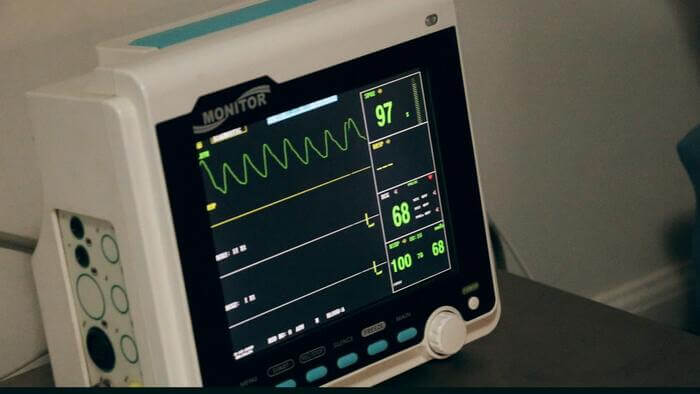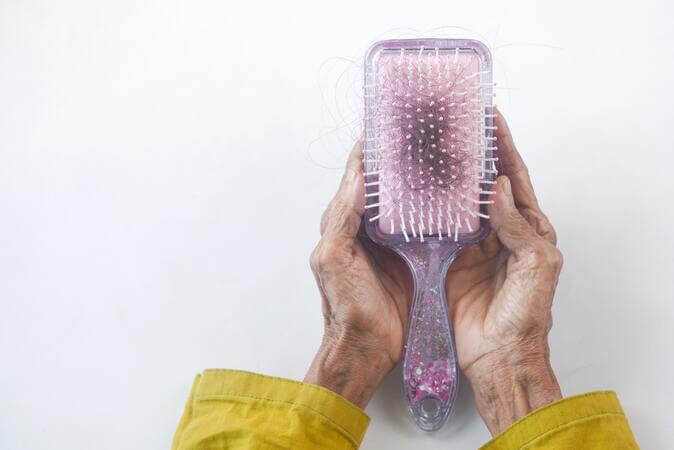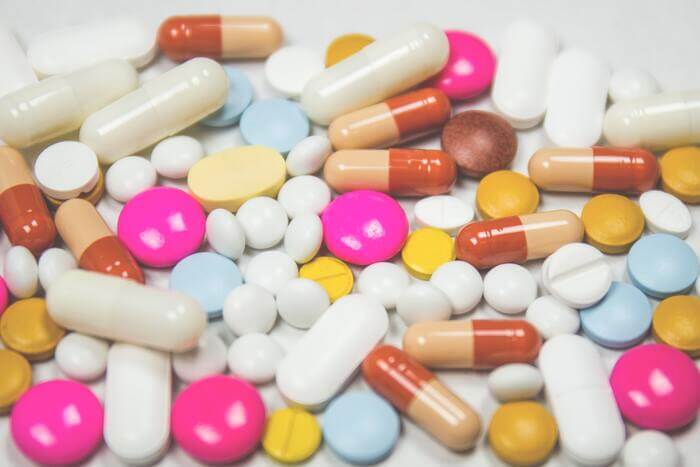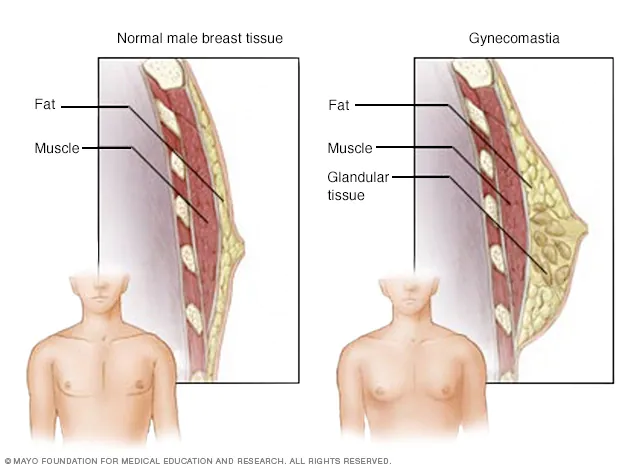Steroids may offer numerous benefits, such as improved athletic performance and muscle growth, but there are also numerous side effects of steroids.
This article takes an in-depth look at some of the most common steroid side effects and how to deal with them if you’re experiencing them.
The goal of this post is to ensure that you know all the potential downsides of taking steroids so that you can make an informed decision about whether or not they’re right for you. Let’s get started!
Table of Contents
Steroids: An Overview
Nowadays, when people hear about steroids, they often think about Arnold Schwarzenegger, Sylvester Stallone or professional athletes. But, did you know that anabolic steroid abuse is one of the biggest substance abuse problems in today’s society?
According to a 2005 report from SAMHSA (Substance Abuse and Mental Health Services Administration), approximately 4.9 million Americans over 12 years old have used anabolic steroids at least once in their lifetime; over 2 million people have used them within a month prior to being surveyed and nearly 1 million people in America use them every single month.
About 90% of users are men who use them for strength and muscle building purposes while 10% are women who use them for bodybuilding purposes.
(click here to read in detail about steroids)
Steroids causes increase in Heart Rate

Taking high doses of steroids can increase your heart rate. The most common cause for a rapid heart rate is taking too much caffeine but if your heart rate is consistently over 100 beats per minute (or above 80 when you’re at rest) and it persists for more than two weeks, you need to get checked out.
Increase in Blood Pressure: A high-dose cycle (400 mg or more daily) for a few weeks can significantly raise blood pressure. However, blood pressure usually drops back to normal levels after about two months (and sometimes sooner).
It’s important to note that if you have untreated high blood pressure prior to taking steroids, then taking them will likely make it worse. Redistribution/retention of body fat: Testosterone increases protein synthesis which results in muscle growth.
When there is an excess amount of testosterone present, fat cells are also stimulated by its presence which leads to fat gain as well as water retention and potentially even gynecomastia (male breast enlargement). This occurs because estrogen is produced due to a high concentration of testosterone.
Gynecomastia caused by steroid use can be permanent if left untreated so make sure you consult with your doctor before deciding on what kind of steroid regimen you want to start.
Gynecomastia (Male Breast Tissue)
Gynecomastia is a condition in which men grow abnormally large breasts. Gynecomastia can be caused by many things, including consuming too much estrogen, as well as some drugs, but it’s a relatively common side effect of anabolic steroid use.
Because anabolic steroids cause levels of both testosterone and estrogen to rise rapidly, gynecomastia is one possible result. It’s not possible to determine which drugs will lead to gynecomastia until you start taking them—sometimes it happens only in rare cases.
But if your body does develop breast tissue where none existed before and you were not already on hormone-altering medication, anabolic steroid use may have been to blame. Some types of anabolic steroids carry more risk than others when it comes to developing gynecomastia.
For example, trenbolone has a reputation for causing severe gyno even at low doses, while other steroids rarely do so even at high doses. If you do experience gyno from steroid use, there are several ways to treat it—including surgery or hormone replacement therapy (HRT). Both approaches carry their own risks and benefits; discuss all options with your doctor before deciding how best to proceed.
Steroids cause Hair Loss and Baldness in Women and Children

Although many men experience excessive hair loss or baldness from steroid use, women who take steroids for athletic enhancement often suffer from thinning hair as well. In fact, in 2011, a young woman using anabolic steroids was convicted of killing her 10-month-old daughter when she shook her while suffering a fit brought on by drug use.
Steroids can also cause a variety of potentially fatal side effects in infants, toddlers and children; these include stunted growth, intellectual impairment and heart problems. Kids who take them may also develop behavioral problems like increased aggression and hyperactivity.
To avoid risking your health or that of your children and loved ones, don’t risk taking anabolic steroids illegally—and certainly don’t prescribe them to others without a doctor’s permission! Instead, if you want to boost your energy levels naturally, consider incorporating a few extra servings of fruits and vegetables into your diet each day.
A diet rich in produce is not only good for your physical health but also promotes mental wellbeing as well.
Steroids Side Effects in Boys

Steroids in boys can lead to stunted growth and irreversible changes to their hormone balance. Your teenage boy’s body is already changing rapidly, and these changes will be accelerated by taking anabolic steroids.
When taking anabolic-androgenic steroids, males may experience premature sexual development such as enlarged testicles and penis, increased breast size or gynecomastia, and thinning of hair on his head. He may also have problems with his voice cracking or breaking during puberty. And he may develop acne at a young age due to high testosterone levels.
In addition, steroid use can cause higher cholesterol levels and accelerated heart disease risk factors in teens. If your teen has any of these symptoms, it could be a sign that he’s using steroids. But some signs aren’t so obvious—they can happen without your child even knowing about them.
You might notice sudden mood swings or aggressive behavior, which can be signs of an underlying condition known as roid rage. Although rare, children who take steroids might experience enlargement of organs such as liver and heart muscles; sleep apnea; kidney failure; testicular atrophy; infertility; baldness; shrinking of sex organs; nausea; headaches; poor appetite and weight loss if taken for long periods.
Anabolic steroids affect women differently than men because they produce less testosterone naturally—but they still put women at risk for health issues like those mentioned above.
Steroids cause Body and facial hair growth

Steroids can cause excess hair growth on your face and body, a condition known as hirsutism. Excess hair is one of several physical changes that can accompany steroid use, including testicular shrinkage, sexual dysfunction and enlarged breasts in men.
However, these physical traits aren’t all due to steroids: Bodybuilders often associate their physique with masculinity and virility; therefore they often grow facial hair to make themselves appear more manly. Women who use steroids are probably taking them for muscle-building purposes, which includes bulking up muscles in their arms, legs and back—and they could develop hirsutism as a result.
As far as breast enlargement goes, it’s not clear whether or not women taking steroids have truly developed gynecomastia (male breast enlargement) or if they’re just experiencing temporary swelling from water retention. Regardless, both male and female users should be aware of these potential side effects when deciding whether or not to take anabolic steroids.
Steroids compromises immune system

Taking steroids can wreak havoc on your immune system. The medications suppress your immune system, so if you get sick, it’s harder for your body to fight off an infection. And infections can become life-threatening in people taking large doses of prednisone (especially those with AIDS).
Long-term steroid use is also associated with high blood pressure and heart disease. Steroids can also cause osteoporosis, a disease that weakens bones by causing them to thin out over time. Signs include stress fractures and pain in areas where bones meet muscle; doctors treat osteoporosis by prescribing bone-strengthening drugs such as Fosamax or Boniva.
Additionally, steroids increase your risk of cancer because they stimulate cell growth. In some cases, steroids have been linked to certain types of cancers including lymphoma and leukemia. They may also increase your risk of skin cancer because they make you more sensitive to ultraviolet light from sunlight and tanning beds.
Steroids make you gain weight

Steroids can make you gain weight, and for many people that’s a bad thing. However, it all depends on how much muscle mass you can put on with your steroid cycle. If you’re able to achieve more than 1-2 pounds of lean muscle mass every week, then it doesn’t matter as much if your body fat goes up in addition to your total weight.
The best time to take steroids is when you have a high caloric intake. The last thing you want to do is lose fat while taking steroids because your overall health will suffer. Also, keep in mind that not everyone reacts well to steroids so don’t be surprised if you don’t experience any gains at all.
That being said, there are plenty of guys who get great results from anabolic steroids—you just need to find out what works for you!
When should I start taking steroids?: This question has two answers: (1) When you’re ready and (2) When it’s safe. You’ll know when you’re ready because there won’t be any doubt in your mind—it’ll just feel right.














